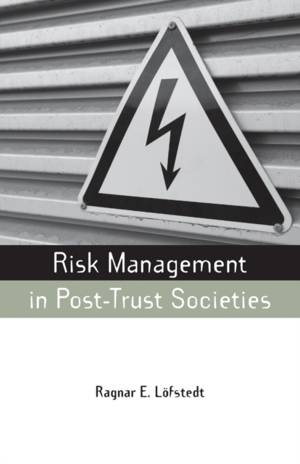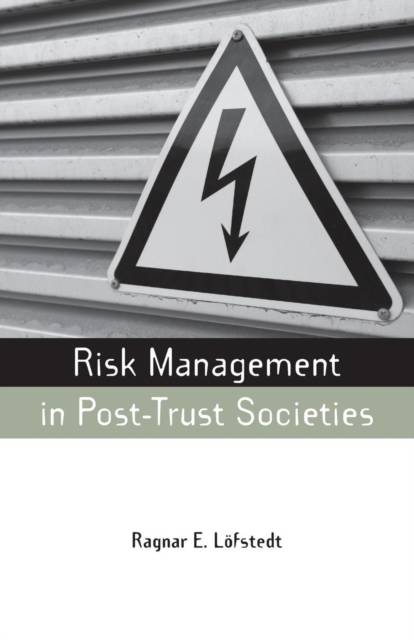
- Afhalen na 1 uur in een winkel met voorraad
- Gratis thuislevering in België vanaf € 30
- Ruim aanbod met 7 miljoen producten
- Afhalen na 1 uur in een winkel met voorraad
- Gratis thuislevering in België vanaf € 30
- Ruim aanbod met 7 miljoen producten
Zoeken
Risk Management in Post-Trust Societies
€ 83,95
+ 167 punten
Omschrijving
�A thought-provoking and invaluable book for anyone who cares about risk communication and management in the 21st century� Anna Jung, Director General, European Food Information Council �Professor Ragnar L�fstedt has once again produced a most interesting book on risk management and trust, well-based on theory and built on empirical findings� Mikael Karlsson, President, Swedish Society for Nature Conservation �Highlights the difficult balancing task facing risk regulators. Regulatory inaction against real risks can undermine public trust. However, exaggerated responses to risks can also jeopardize regulators� credibility. The diverse international case studies developed by Ragnar L�fstedt provide guidance for how regulators can navigate these and other frequently competing concerns� W. Kip Viscusi, Cogan Professor of Law and Economics, Harvard University, USA �In democracies, government policies cannot succeed without public acceptance. Yet complex risk management requires technical expertise. How to reconcile these competing needs? Ragnar L�fstedt provocatively challenges recent research claiming that risk managers must engender public trust via deliberative dialogue. He uses four cases studies to argue that the reasons for distrust vary and demand different responses; that in some cases trust can flow from technical competence without public deliberation; and that in others public deliberation can actually aggravate distrust. Trust me: L�fstedt�s book will add spice to the debate over risk, experts, the public and trust� Jonathan B. Wiener, Perkins Professor of Law and Environmental Policy, Duke University, USA We live in �post-trust� societies, in which public confidence in governments and corporations over health, food and environmental risk is eroding rapidly. Good risk communication can help companies, governments and institutions minimize disputes, resolve issues and anticipate problems. Without such communication, the best policies can become derailed and trust can be lost. Most policy-makers still use outdated methods to communicate policies and achieve their objectives - methods developed before public trust in industry and government was affected by health scares such as BSE, genetically modified organisms and dioxins in Belgian chicken. This book provides effective methods for managing and communicating risk effectively in contemporary societies.
Specificaties
Betrokkenen
- Uitgeverij:
Inhoud
- Aantal bladzijden:
- 192
- Taal:
- Engels
- Reeks:
Eigenschappen
- Productcode (EAN):
- 9781844077021
- Verschijningsdatum:
- 16/12/2008
- Uitvoering:
- Paperback
- Formaat:
- Trade paperback (VS)
- Afmetingen:
- 137 mm x 211 mm
- Gewicht:
- 249 g

Alleen bij Standaard Boekhandel
+ 167 punten op je klantenkaart van Standaard Boekhandel
Beoordelingen
We publiceren alleen reviews die voldoen aan de voorwaarden voor reviews. Bekijk onze voorwaarden voor reviews.







